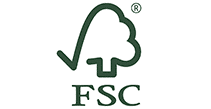EUTR – European Timber Regulation
Einar Risør A/S unconditionally rejects illegal logging and the further processing and sale of illegal timber. We are committed to working with our suppliers and other stakeholders to eliminate the problem.
The EU Timber Regulation, in English called the EU Timber Regulation or simply EUTR, contains obligations for all actors who handle timber or timber products on the European market.
The regulation prohibits the marketing of illegally harvested timber in the EU. This applies to imported timber as well as timber harvested in the EU.
The purpose of the EU Timber Regulation (EUTR) is to combat illegal logging and discourage trade in illegally harvested timber.
In 2003, the EU Commission adopted the so-called FLEGT action plan to curb illegal logging and deforestation in the world’s forests.
FLEGT stands for Forest Law Enforcement, Governance and Trade.

The Action Plan outlines a number of initiatives that link good governance in developing countries with legal trade instruments and the leverage of the EU internal market.
The EU Timber Regulation, EUTR, does not require that the legality of the timber be proven. However, the EUTR specifies elements of a due diligence system that companies must establish. The system is intended to minimise the risk of trading in illegal timber.
Companies can establish their own due diligence system, or they can use a system developed by a “monitoring body” a so-called Monitoring Organisation (MO).
The due diligence system must ensure that the company has access to specific information about the timber products, including the country of harvest, wood species, quantity or weight, information about who the goods were purchased from and information that demonstrates compliance with the legislation in the country of harvest.
A due diligence system must also include a risk analysis that enables companies to assess whether the wood has been harvested in accordance with the legislation in the country of harvest.
Except where the risk can be said to be negligible, companies are obliged to implement risk-mitigating measures. Such measures can range from requiring additional documentation of legality from the supplier through third-party verification to changing the supplier.
The due diligence requirement only applies to companies that place timber and timber products on the market for the first time, such as importers or forest owners. For products already on the market, traceability is required.
Companies are obliged to maintain and regularly evaluate their due diligence system.
However, this does not apply in cases where companies use a due diligence system developed by a monitoring body.
In these cases, it is the monitoring body’s duty to maintain and evaluate the due diligence system offered to users.
For all traders of wood and wood products in the EU, including those who simply resell wood and wood products after the wood has been placed on the EU market for the first time, an obligation is introduced to keep track of who the wood was purchased from and to whom it was resold.
Did you know?
As a raw material, wood can substitute products that are more energy-intensive
As a biofuel, wood can substitute fossil fuels
The EU Timber Regulation (EUTR) covers virtually all wood products from all countries of origin, regardless of whether they are produced in or outside the EU.
Einar Risør Finerhandel A/S has of course implemented a due diligence system.


